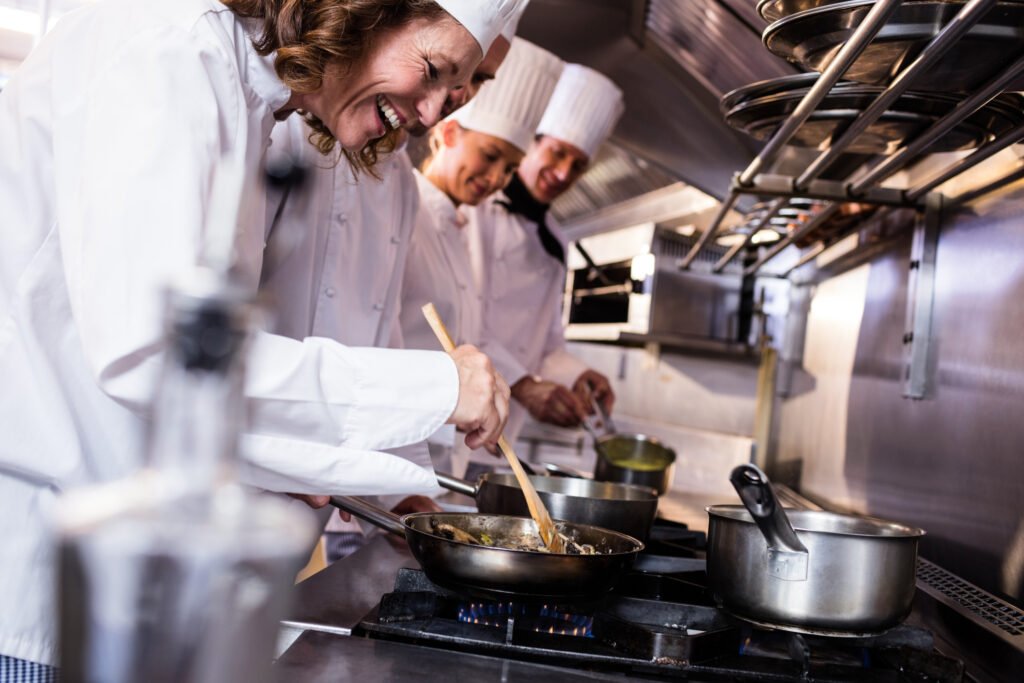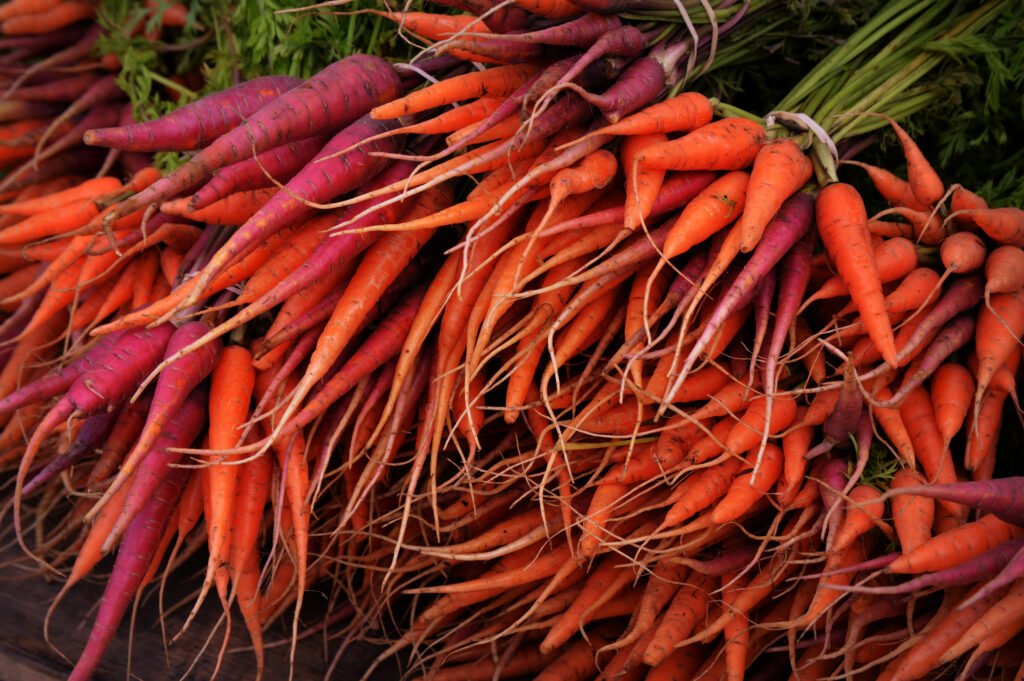Your first taste of blackberry-currant wine at a hidden tasting room reveals a secret. Des Moines isn’t just about cornfields and big events. It’s a place where old traditions meet new ideas, turning every meal into a story you won’t forget.
As you explore Court Avenue’s brick alleys, you stumble upon a hidden gem serving pork belly with an elderflower glaze. It’s the kind of surprise that challenges everything you thought you knew about the Midwest. In Des Moines, the food scene is a fusion of Iowa’s rich soil and the bold creativity of globally inspired chefs.
At The Donut Hole, you can try artisanal doughnuts. Craft breweries in the city use prairie plants in their beers. It shows that Iowa’s food scene is more than a trend. Every meal here is a mix of old and new, with fresh smells in the air.
As a food lover, you travel far in search of flavor—but Des Moines catches you off guard with its quiet food revolution. You wander through farmers’ markets bursting with unique vegetables, and find taco trucks where third-generation cooks craft fresh masa by hand. Every bite feels like uncovering a new chapter in America’s culinary story.

Buildings Architecture Downtown Des Moines Iowa City Skyline. A Sunny Winter Day In Downtown Des Moines, Iowa
Key Takeaways
- Des Moines redefines the Midwest as an under-the-radar Iowa culinary destination with inventive farm-to-table dining.
- Culinary travel to Des Moines offers a blend of heritage ingredients and global culinary techniques in an accessible, welcoming setting.
- Local chefs transform Midwestern staples like corn and pork into dishes that balance bold flavors and artful presentation.
- The city’s food scene thrives in historic neighborhoods like East Village, where historic buildings house innovative eateries.
- From winter charcuterie boards to summer peach cobbler, seasonal ingredients drive the Des Moines food scene’s year-round vibrancy.
Discovering Iowa’s Hidden Culinary Gem
Your first taste of black-truffle grits changes your view of unexpected food cities. Des Moines is more than a crossroads; it’s a lively spot in Iowa food tourism. The city’s rise as a Midwest food hotspot started quietly. Chefs mixed local grains with international tastes.
The Unexpected Rise of Des Moines’ Food Scene
Old warehouses now home Des Moines restaurants like Harvest Café. They serve dishes with heirloom beans, celebrating the region’s soil and taste. Farmers’ markets and craft breweries sparked creativity, showing that corn-fed ideas can be innovative.
Breaking Midwestern Food Stereotypes
Forget about meatloaf. Try smoked quail with persimmon glaze at The Mill or kimchi pierogi at Prairie’s Edge. Chefs here update classics with Michelin-level skill. Chef Lena Torres says, “We’re not against tradition; we’re just making it bigger.”
Why Food Enthuasiasts Are Flocking to Iowa’s Capital
Food lovers seek real experiences. A 2023 survey by Travel + Leisure named Des Moines a top Midwest gastronomy spot. Visitors enjoy dishes like honey-glazed pork belly with wild greens. It shows that heartland food can be both rich and refined.
From Farm Fields to Fine Dining: The Evolution of Des Moines’ Food Culture
Walking through Des Moines today, the Des Moines culinary history comes alive in every bite. Your first visit to the Downtown Farmers’ Market shows you how Iowa food culture blends tradition and innovation. You see how farmers once turned prairies into cornfields—and now, their hard work lives on in the farm-to-table menus you savor.

Rows Of Green. A Soybean Field At Dusk.
A century ago, Czech and German immigrants brought hearty stews and breads. Today, their recipes inspire chefs to reimagine the Midwest’s food evolution. At Wilderness Brewing, you enjoye smoked pork belly and locally foraged mushrooms, connecting old traditions with new flavors.
“The soil feeds the soul,” says chef Maria Torres of Root & Rye, whose menu celebrates Iowa’s agrarian heartbeat.
- Pivotal 1980s farm cooperatives laid groundwork for today’s farm-to-table ethos
- 2000s saw urban gardens sprouting in former industrial zones
- 2020s farm dinners now connect diners directly with hog farmers and apple orchard keepers
| Historical Roots | Modern Expressions |
|---|---|
| Cornbread and sauerkraut | Heirloom grain pastas |
| Butcher shops | Charcuterie bars with heritage-breed meats |
| Railroad-era diners | Food trucks serving amaranth pancakes |
Every autumn, the Polk County Harvest Festival celebrates this journey. Apple butter made in 1800s methods meets sous vide squash at tasting stations. This Midwest food evolution is about resilience and reinvention. At Urban Roots Distillery, sipping peach cobbler liqueur, you see Des Moines’ tables as where tradition meets tomorrow’s flavors.
Culinary Travel to Des Moines, Iowa: Why It Deserves a Spot on Your Foodie Bucket List
Des Moines food tourism is more than a visit—it’s an invitation to savor a city where every dish tells you a story. As someone ready to map out countless meals of your own, you’ll find this guide helps you navigate Des Moines’ vibrant culinary tapestry. Let’s start with the essentials for your journey.
The Perfect Weekend Itinerary for Food Lovers
Your ideal foodie weekend in Iowa starts with pastries at Café Va Bene. Their croissants are a revelation. By afternoon, you’re exploring Modern Market for farm-fresh bites that hit just right
Evenings belong to Elm Street Kitchen’s inventive tasting menus. End nights at Whiskey & Wood, where cocktails taste like liquid art. This rhythm balances discovery with indulgence.
Seasonal Highlights: When to Visit for Maximum Flavor
- Spring: Sample asparagus at farmers’ markets post-thaw.
- Summer: Grilled street food at East Village under string lights.
- Autumn: Pumpkin spice lattes and harvest-themed dinners.
- Winter: Cozy in at Baru with butternut squash risotto.
Timing matters. The best time to visit Des Moines hinges on what you crave: whether it’s crisp apple cider or summer’s first tomatoes.
Navigating the City’s Culinary Neighborhoods
East Village hums with craft coffee shops and taco trucks; Western Gateway dazzles with steakhouses and wine bars. Court Avenue’s historic buildings house taverns serving smoked brisket. Each area whispers its own culinary language—listen closely.
“Des Moines isn’t just a stop—it’s a destination where every bite connects you to the heart of the Midwest.”
Whether savoring prairie-fed beef or sipping a locally roasted espresso, this city turns every meal into an adventure. Your journey begins here.
Meet the Chefs Revolutionizing Midwest Cuisine
Every dish in Des Moines has a story. It’s about passion and purpose. Des Moines best chefs mix innovation with heartland roots. They are changing what Midwestern food can be.
Local Visionaries Changing the Game
Chef Maria Voss of Root & Hearth uses Iowa’s heirloom grains. She forages them from Iowa fields. “This soil feeds more than crops,” she said in a Des Moines chef interview.
Her black trumpet mushroom risotto is a local favorite. It shows the region’s true taste. Nearby, Chef Javier Torres at Casa de la Pradera blends Oaxacan spices with Iowa corn. It’s a beautiful mix.
Transplants Bringing Global Influence
Chefs like Tokyo-trained Yuki Sato bring new ideas to the Midwest. At Kizashi Bistro, he uses Iowa pork like Kagoshima’s. His slow-cooked trotter dish is a must-try.
These Iowa culinary talent mix global flavors with local ingredients. Their dishes feel both new and familiar.
Rising Stars to Watch
Young chefs like 24-year-old Ethan Cole are making waves. His pop-up, “Dirt & Dreaming,” features foraged greens and heritage grains. “This is our time,” he says, smiling as he serve a quail dish.
His work shows a future where tradition and new ideas come together. It’s a city where food bridges generations and places.

Group Of Chef Preparing Food In The Kitchen Of A Restaurant
“Food here isn’t just fuel—it’s a bridge between generations and geographies.” – Chef Maria Voss
Beyond Corn and Pork: Unexpected Flavors in Iowa’s Capital
Your first sip of phở in a hidden Des Moines alley changes how you see Midwestern food. The broth’s deep flavors—rich with charred onions and a hint of cinnamon—take you by surprise. Des Moines’ food scene pulses with global traditions, vibrant and unexpected.
From the spicy Ethiopian injera at a Capitol East restaurant to the crispy llapingachos (Ecuadorian potato cakes) in West Des Moines, each dish has a story. These stories are about migration and overcoming challenges.
Iowa’s international cuisine is found in unexpected places. A Nepalese curry house near Grand Avenue offers mo:mo dumplings that take you to the Himalayas. A busy Chinese noodle bar in Valley Junction crafts hand-pulled lamian noodles.
These dishes are more than just food; they connect you to different cultures. The smell of berbere spice in a small Ethiopian café or the crunch of Korean kimchi at a family-run store show Des Moines’ true diversity.
Hidden gems in Iowa offer flavors that surprise and delight. A Vietnamese sandwich cart serves a crispy banh mi with pickled carrots and chili sauce. These tastes are part of Des Moines’ identity.
Every bite of West African jollof rice or Thai basil pork stir-fry is a celebration. It’s a dialogue between old and new, showing the richness of Des Moines’ culinary scene.
The Downtown Renaissance: Urban Eateries Redefining Des Moines
Walking through downtown Des Moines today is like feeling the city’s heartbeat through its food. What was once a quiet area now buzzes with clink of glasses in vibrant culinary exploration. Every corner has a story to tell. Old warehouses now have open kitchens, and alleyways have pop-up tastings. This is where tradition meets innovation in every bite.
The East Village’s Eclectic Food Landscape
This Village has changed from an industrial zone to a food lover’s paradise. East Village Des Moines dining mixes global flavors in old factories. You can find Korean-Mexican tacos, wood-fired pizzas, and flaky croissants.
Walk past murals and into places where concrete meets linen. It’s a unique experience.
Western Gateway’s Culinary Treasures
Near the sculpture park, Western Gateway food scene offers top-notch meals. Restaurants here use Midwestern ingredients in new ways. A standout dish pairs Iowa ramps with miso-infused tonkato.
This shows how innovation happens where art and agriculture meet.
Court Avenue’s Historic Dining District
On Court Avenue, history and food come together in Court Avenue restaurants. The Bankers Building now has a speakeasy steakhouse. A 1920s bank vault has a dessert bar with liquid nitrogen ice cream.
Every visit is a trip through time, with each dish tasting like a revival.
| Neighborhood | Signature Experience | Iconic Dish |
|---|---|---|
| East Village | Street-side espresso bars | Saffron-infused paella |
| Western Gateway | Museum-restaurant collaborations | Pork belly with blackberry gastrique |
| Court Avenue | Warehouse rooftop dinners | Truffle fondue with heirloom bread |
Every district is more than just food—it’s where Des Moines’ story comes alive. It’s where urban grit meets gourmet artistry. Come and enjoy the rebirth.
Farm-to-Table Excellence: How Des Moines Embraces Its Agricultural Roots
As you walk through Des Moines, you watch fields of corn and soybeans transform into unforgettable dishes. The city’s farm-to-table way of life isn’t just a trend—it’s real. At spots like Gray Plume and Worthington’s, you see how Iowa’s sustainable restaurants thrive with local support. Chefs here collaborate with farmers to create menus that shift with the seasons.

Purple And Orange Carrots At The Dane County Farmers Market In Madison, Wi.
“When the soil is this fertile, why wouldn’t every dish tell a story of place?”
—Chef Amanda Johnson ofRooted Table, alocal sourcing Des Moinespioneer.
At Worthington’s, they use pork from Black Earth Farms, which tastes like Iowa’s soil. Rooted Table’s summer salads have fresh heirloom veggies. It’s not just Iowa agricultural dining; it’s celebrating the land.
These partnerships do more than add flavor; they build communities. People can see where their food comes from, knowing it supports local farmers. Des Moines chefs honor tradition while bringing new ideas, showing that farming is the heart of the region.
Liquid Refreshment: Craft Breweries, Distilleries, and Coffee Shops

A Photograph Of Iron Artwork On Top Of A Brewery In Downtown Des Moines, Iowa
The city’s craft beer culture thrives in its urban breweries, where barley meets creativity. At freedom hill brewing, you sip a honey-infused saison that captures the richness of Iowa’s agriculture in every drop.
Breweries like Urban Chestnut and Bright Spot make crisp lagers and hazy IPAs. They prove Des Moines’ beer scene is as good as big cities.
The Beer Scene That’s Brewing Excellence
Local Iowa distilleries add to the scene. High Trestle Distilling makes corn whiskey in a 1920s speakeasy. Cedar Ridge offers small-batch gins with prairie botanicals.
Their spirits shine in cocktails like the “Amber Grove” at The Mill. This bar is in a converted warehouse downtown.
Cocktail Culture in the Heartland
Des Moines coffee shops start the day with precision. Cultivar Coffee roasts beans from Ethiopia and Guatemala. They pour them through hand-crafted siphons.
Blacksmith Coffee Roasters in the East Village blends beans from Colombia. Their espresso tastes of dark chocolate and jasmine. The Des Moines beverage scene is more than caffeine—it’s a ritual of slow sips and stories.
Third Wave Coffee Movement in Des Moines
| Coffee Shop | Signature Brew | Location |
|---|---|---|
| Cultivar Coffee | Yirgacheffe pour-over | 315 Locust St |
| Blacksmith | Colombian espresso | 101 E 5th St |
From barley to beans, Des Moines’ Des Moines craft beer and coffee scenes show the city’s love for craftsmanship. Each sip tells you a story of soil, skill, and local pride. This is a city where every drink invites you to linger, taste, and explore.

Coffee Shop Is Open – Smiling Woman At Workplace At New Open Cafe
Food Festivals and Markets: Celebrating Iowa’s Bounty
As you walk through the Downtown Farmers’ Market on a crisp autumn Saturday, you’re greeted by the earthy scent of heirloom tomatoes and the lively chatter of vendors. Since 1975, this weekly ritual transforms Court Avenue into Iowa’s most vibrant culinary crossroads. Farmers share stories alongside their produce, and artisanal goods spark conversations among locals.
Downtown Farmers’ Market: A Saturday Institution
Every Saturday becomes an adventure at this Des Moines farmers market. Honey-glazed apples and freshly baked sourdough loaves line stalls. Vendors like Cedar Valley Cider Works offer tastings of their seasonal ciders, while chefs from downtown restaurants scout ingredients for their menus. This open-air marketplace isn’t just a market—it’s the heartbeat of Iowa’s farm-to table ethos.
Annual Food Events Worth Planning Around
From the Iowa food festivals like the Iowa Brewers Festival, which pairs craft ales with live music, to the Global Flavors Festival celebrating Des Moines’ growing diversity, these gatherings turn streets into stages for culinary theater. Don’t miss the Winter Farmers Market’s holiday spice market—a seasonal treat that keeps the spirit of local agriculture alive year-round.
Pop-up Dining Experiences Not to Miss
Transient Des Moines pop-up dining events like the annual Harvest Supper Club or the Riverfront Food Series offer fleeting moments of discovery. These seasonal food events Iowa range from farm-to table dinners under string lights to collaborative menus from chefs who’ve never cooked together before. Each fleeting experience mirrors the impermanence of summer stone fruit or winter squash—reminding us to savor the moment before it disappears.
Affordable Eats: Experiencing Des Moines’ Flavors Without Breaking the Bank
Des Moines’ food scene is all about simplicity and skill. You find that budget dining Des Moines is a celebration of creativity for all. You can find amazing cheap eats Des Moines and affordable restaurants Iowa that offer delicious meals at great prices.
- Weekday Lunch Specials: Places like Brick & mortar have menus under $15. You can enjoy dishes like seared scallops or herb-roasted chicken for a good price.
- Ethnic Enclaves: Pho 8 serves a $7 bowl of phở that’s as good as the fancy ones. And at El Portal Taqueria, you can get $5 tacos with Oaxacan flavors on handmade tortillas.
- Local Legends: La Baguette has been around for 35 years. They sell French pastries for under $4, like their famous croissants.
| Restaurant | Signature Dish | Price |
|---|---|---|
| Pho 8 | Phở Tai ($7) | Broth simmered 12 hours |
| El Portal Taqueria | Al pastor tacos ($1.50/ea) | Pork slow-roasted on vertical spits |
| La Baguette | Chocolate croissant ($3.50) | Flaky layers with Valrhona ganache |
“Great flavors don’t need big budgets,” says chef Maria Gonzalez of Brick & mortar. “We design lunch menus so everyone can taste our passion.”
These places show that budget dining Des Moines is not a sacrifice. It’s a chance to enjoy amazing food. Every dish tells you a story of love and tradition. This is where Des Moines’ food heart beats, one affordable meal at a time.
Where Locals Eat: Neighborhood Favorites Beyond the Tourist Trail
Des Moines’ true taste comes alive in hidden spots loved by locals. These places feel like home, where everyone knows the chefs. Here, warm buttered rolls and lively chats are as common as coffee.
Beaverdale’s Hidden Gems
In Beaverdale, a bright café is the spot for big breakfasts. Buttermilk pancakes and maple syrup are a favorite. Nearby, a diner serves fry bread tacos with smoked pork and pickled onions. Des Moines local restaurants here feel like family kitchens, where the chef remembers your coffee order.
The Southside’s Authentic Eateries
“We don’t make for tourists—we make for home,” says Sofia, wiping down the counter at La Taza. Her family’s Oaxacan tamales, steamed in banana leaves, embody the neighborhood’s spirit. A block over, a Slovenian deli’s ajvar-stuffed pogače and a Vietnamese sandwich shop’s lemongrass beef pho showcase the Southside’s layered heritage.
Ingersoll Avenue’s Restaurant Row
Along Ingersoll, a century-old soda fountain meets a modern tasting menu spot. At noon, office workers line up for tacos; by night, wine pairings are served. Every table here has a story, like the Syrian-owned pita shop perfecting za’atar for 25 years.
These spots reveal Des Moines’ real, unpretentious side. They’re not on postcards but are deeply rooted in the community’s heart. They show the city’s quiet pride in its food.
Conclusion: Why Des Moines Deserves Recognition as America’s Underrated Culinary Capital
Des Moines is more than a stop on the way to Chicago or Omaha. It’s a place where food tells a story of reinvention. The Midwest is known for hearty meals, but Iowa’s capital is full of creativity.
Places like Downtown Farmhouse and Ingrid’s show Des Moines’ culinary talent. Here, local corn turns into artisanal cornbread, and pork gets a new twist in small plates.
Des Moines’ authenticity is what makes it special. Chefs like Ricky’s Diner’s Chris Scherber update Midwestern classics with respect. The city’s markets, like the Downtown Farmers’ Market, show its love for farmers and flavor.
Travelers often skip the Heartland, but Des Moines is a hidden gem. It combines agricultural heritage with modern innovation. Even a casual taco spot like Tacos Elote is a surprise.
Des Moines is where America’s culinary story is being written. With cornfields and Midwestern warmth, it’s a place to explore. The next chapter is waiting for those who dare to try something new.


